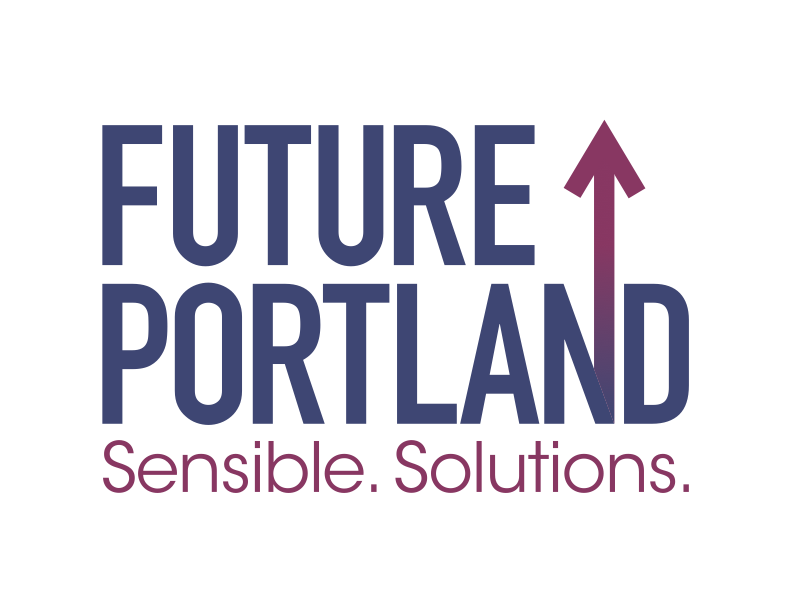Testimony to Multnomah County Board - Sanctioned Camping & Parking Needed NOW!
This week we would like to talk about sanctioned camping in Multnomah County. Several other local jurisdictions that fall under the 9th Circuit Court Martin versus Boise decision, like Astoria and Bend, have consulted their city attorneys and determined that there’s absolutely nothing illegal about setting time and place restrictions on camping. The only thing that nobody wants to make illegal is being able to sleep outside if there are not enough other options available. This is why no other city in the 9th Circuit looks as bad as Portland does today, despite having more total population, and therefore more total homeless population on their streets.
78% of Portlanders – surely that number is higher if the entire county were to be polled – are begging for sanctioned campsites to be created. We know that is the biggest first step to starting the domino effect of solving the multiple layers of crises Multnomah County is facing today. Everyone knows that more lighting and cleanliness are the best ways to deter crime, and our county has never been filthier. Mayor Wheeler has a nice idea, but it is at least 2 years out and he has not been able to determine one site yet for such a large-scale undertaking. We are hopeful, but the county needs to counterbalance this with a plethora of other smaller scale sanctioned camping and parking areas.
The county has the power and authority to create dozens if not hundreds of smaller sanctioned camping areas immediately. The ability to sleep without fear of being swept is something so many campers have asked for. Sanctioned sites would also make it much easier for volunteers to reach people who need their services and local police and sheriff to know where to drive-by and keep an eye out during patrols. These sites do not need a suite of services; a basic fence, dumpster and toilet service would suffice in helping keep these folks in a healthier and safer space than an open and illegal site that criminals are enticed to take advantage of them at.
Many municipalities around us, including Clark and Washington Counties, have quickly and successfully set up safe parking areas for those who are living in vehicles and need them to get to work. Parking laws that are in place for everyone’s safety are being overlooked because we have nowhere to send these folks to safely park, where they have access to a dumpster and a toilet. We do not need to provide anything more than a sanctioned tent site at these parking sites, either.
We also ask that you consider transforming a multitude – not all, as we understand the need for women and children specific spaces – of current day shelters into 24/7 and low barrier shelters (meaning pets and couples allowed) that seem to have the longest waiting lists. Fix the issues with the existing shelters, don’t say “I understand why they wouldn’t want to go there”. You hold the purse strings to the contracts, you create the rules and oversight. And we know local firms have approached you with software options to help get our shelters and villages into a single database so we can easily find an opening and transport a person in need to the place of their choosing.
The county also needs to strongly consider immediate expansion of the pilot program to partner with community faith-based organizations to help connect them to service providers and resources to build more tiny villages. We also need to stop turning up our noses at wealthy local developers that want to infuse money into unique projects like these to help clean up the county. There is nothing nefarious about wanting the place you are invested in to be a healthy, vibrant community and they should be commended for wanting to lend a hand via their investment dollars.
Once we have this plethora of sanctioned campsites, safe rest villages, shelter beds and public-private village openings ready and on a shared software system, we will easily be able to provide a map of options to a person in need and help transport anyone who is illegally camping to somewhere they are allowed to be. At that point the county would be clean enough to easily rouse and move those who choose to still sleep outside in non-designated camping areas after sleep hours have ended.
Chair Vega Pederson, in a recent Willamette Week article, you asked of Wheeler's camps, "What is the end goal of the proposal?" Combined with Built for Zero, Shelter Now has already provided the county with the statistics on their success rates at helping the chronically houseless in shelter sites that include wraparound services on site along with a robust continuous improvement data collection tool. It seems like a no-brainer to us that the county immediately instruct the Joint Office of Homeless Services to start work right away on implementing these projects.
In that same Willamette Week interview you admitted that the county has a need to shift what percent of the Metro Homeless tax money we’re spending over to the chronically homeless lingering on the streets, as only 35% of funds went to that in 2022. We voted overwhelmingly to pass this tax to deal with the people currently living outside. Rent assistance is a good and noble cause, but it’s doing nothing to help the THOUSANDS of souls dying slowly on our streets, and that number is only growing because we are allowing the illegal camping to persist on the streets of our county. We have to stop the leak - sanctioned camping is the best and easiest first step, and overwhelmingly voters are saying this is the solution we want.
Thank you.

